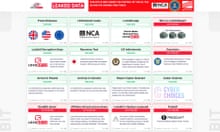Technology, telecoms and social media companies should take more responsibility for stopping scams as the problem reaches “epidemic proportions”, the UK’s biggest building society has warned.
Cases of authorised push-payment fraud, where victims are persuaded to pay money into a criminal’s account, have risen sharply since the Covid pandemic began, with banks last week revealing that losses from such scams were up by 71% in the first half of the year.
In many of these, customers are persuaded that their account has been compromised, or that they are buying into a good investment, and are asked to transfer cash into an account elsewhere.
Nationwide said that every day it was supporting customers who had fallen victim to a scam. The society’s economic crime director, Stuart Skinner, said: “We’re at epidemic proportions – for my team, the majority of their time is spent on scams.”
The society has launched a scam checker service, where members can call at any time of day or night to talk about whether a potential payment is legitimate.
If the person at Nationwide reassures the customer that the payment is genuine, but it does turn out to be a scam, the society has promised that the customer will get a full refund. But if the customer is warned against proceeding, or withholds important information, the promise does not apply.
The details of the phone line will appear in various places, including on-screen during online payments.
The society said it hoped that by offering the service it could make people stop and think before making payments.
Joe Garner, the chief executive of Nationwide Building Society, said: “Success is not just ensuring victims are reimbursed – but also preventing these crimes happening in the first place. That’s why we are introducing our scam checker service to help prevent our members being scammed.
“We’re also calling on the big tech, telecoms and social media companies that play host to these crimes to take more responsibility for stopping them. We must work better together in the mutual interest of fighting this criminal activity.”










